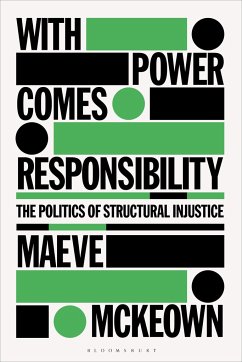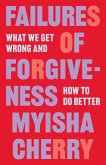Does buying clothes from a high street shop make me morally responsible for sweatshop labour? If I, as a consumer, am not responsible, who is? Can anyone bear responsibility for a "structural" injustice? Some thinkers like Iris Marion Young claim nobody in particular is morally responsible for structural injustice. Instead, all people share a non-blameworthy political responsibility to change it. With Power Comes Responsibility argues that there are moral agents, more responsible than others, for global structural injustice and recognising this is crucial to powerful institutions and individuals taking on the responsibility to change things for the better. McKeown does not dismiss the fact that we all need to take responsibility for ushering in change but also argues that these smaller, personal acts of resistance shouldn't distract from holding powerful agents to account. To put it bluntly, the person buying clothes from a high street shop is not as responsible as the shop making their clothes in sweatshops. McKeown uses case studies from around the world including the Nike Corporation and Facebook, and explores world events such as the COVID-19 crisis and the toppling of slave trader statues as moments when the power and ubiquity of structural injustice is revealed.








